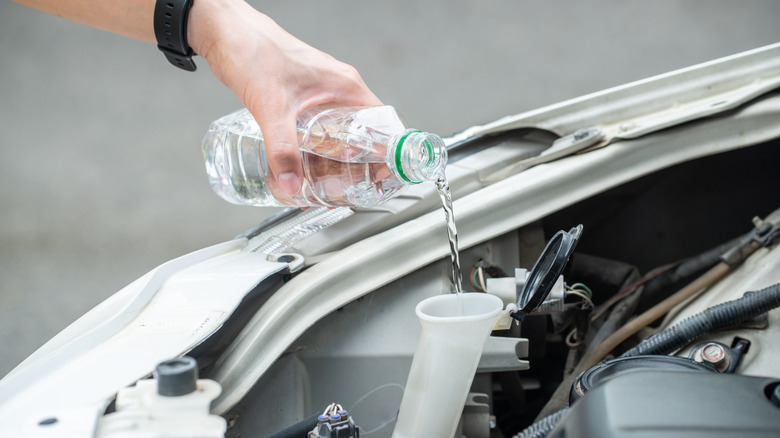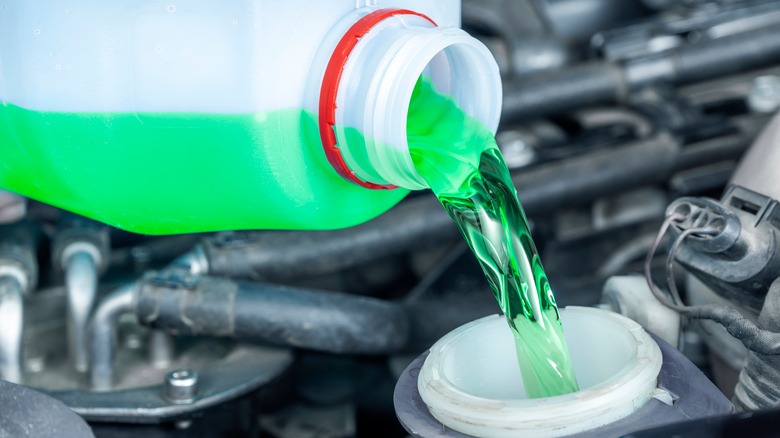Think Twice Before Using Water Instead Of Coolant In Your Radiator: Here's Why
Few situations can rival the frustration of finding yourself on a desolate road in the middle of nowhere with an overheating engine. You pull over as soon as you notice the gauge leaning dramatically to the right, but now what? Maybe you forgot to change your car's coolant before a long road trip and now it's critically low. If you're like most people, you likely don't carry a spare bottle of radiator coolant in the trunk. But you do have some bottled water — that'll do the trick, right?
In the 1930s, owners of the Ford Model A used water as a coolant, although using the distilled variety without minerals was preferable. However, those historical engines were much more basic and didn't require nearly as much cooling as modern engines do today. If you do find yourself stranded with no help in sight, adding water to your engine could help you limp it along until you find a service station. Unfortunately, there are several reasons why you should avoid pouring water into your radiator.
What makes coolant better than plain water?
Before understanding why you should think twice before using water in lieu of coolant, it's important to understand what the latter is made of. Most coolants include ethylene glycol and additives made of surfactants. You can also find propylene glycol-based coolant, which offers a mixture with fewer harmful chemicals.
What advantages does glycol coolant have over basic water? One of the significant downsides to pure water is that it can rust or corrode engine parts. When the inside of an engine starts to experience corrosion, even proper coolants begin to fail as heat transfer is limited. In addition, rust buildup can advance to the point of blocking up the radiator.
Coolant offers two vastly superior functions: a protective coating and enhanced resistance to temperatures. Radiator fluid coats the inside of the engine with a protective layer to prevent rust, helping to keep engine components healthy. Ethylene glycol also has higher boiling and freezing points than water, so it doesn't expand under extreme temperatures like water would, causing cracks and additional pressure on your engine.
So why is coolant mixed with water?
If water isn't recommended for your radiator (unless it's a dire situation), why does coolant still contain water? While water alone doesn't perform adequately, once it's mixed with coolant chemicals, it actually helps the temperature problem.
Ethylene glycol is highly viscous without water, meaning it's too thick to be effective. Water helps thin out the coolant so it can better travel to all the areas requiring protection. A water-coolant mix also helps achieve a higher resistance to intense heat and freezing cold. In terms of cold temperatures, radiator fluid alone would freeze sooner than radiator fluid mixed with water. Alone, neither water nor coolant can offer a heat capacity high enough to help engines perform their best.
To make sure you're not stuck on the side of the road with a steaming engine, first, learn the reasons why your car's engine overheats. Then make sure you're using the right substance to keep its temperature stable.


